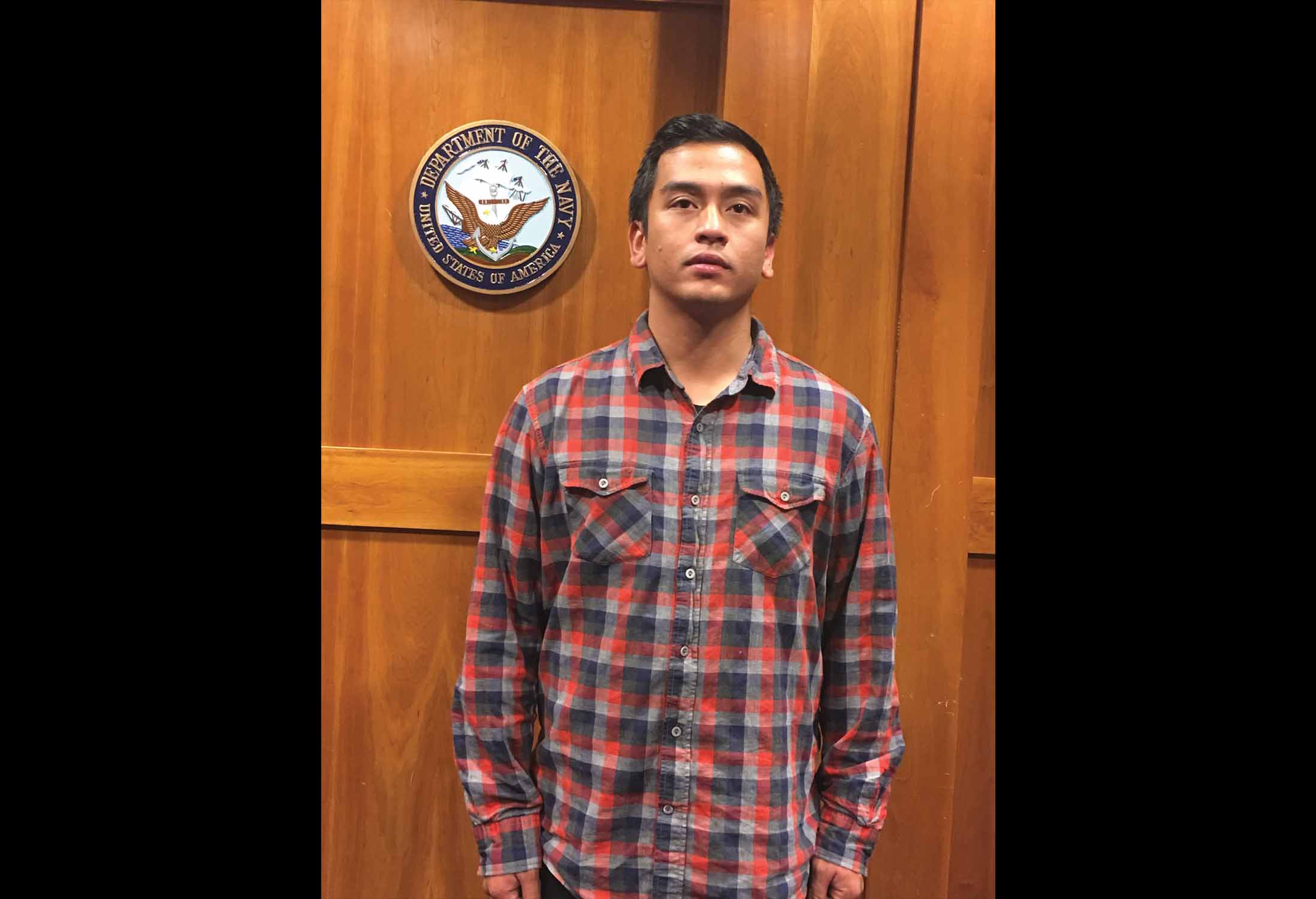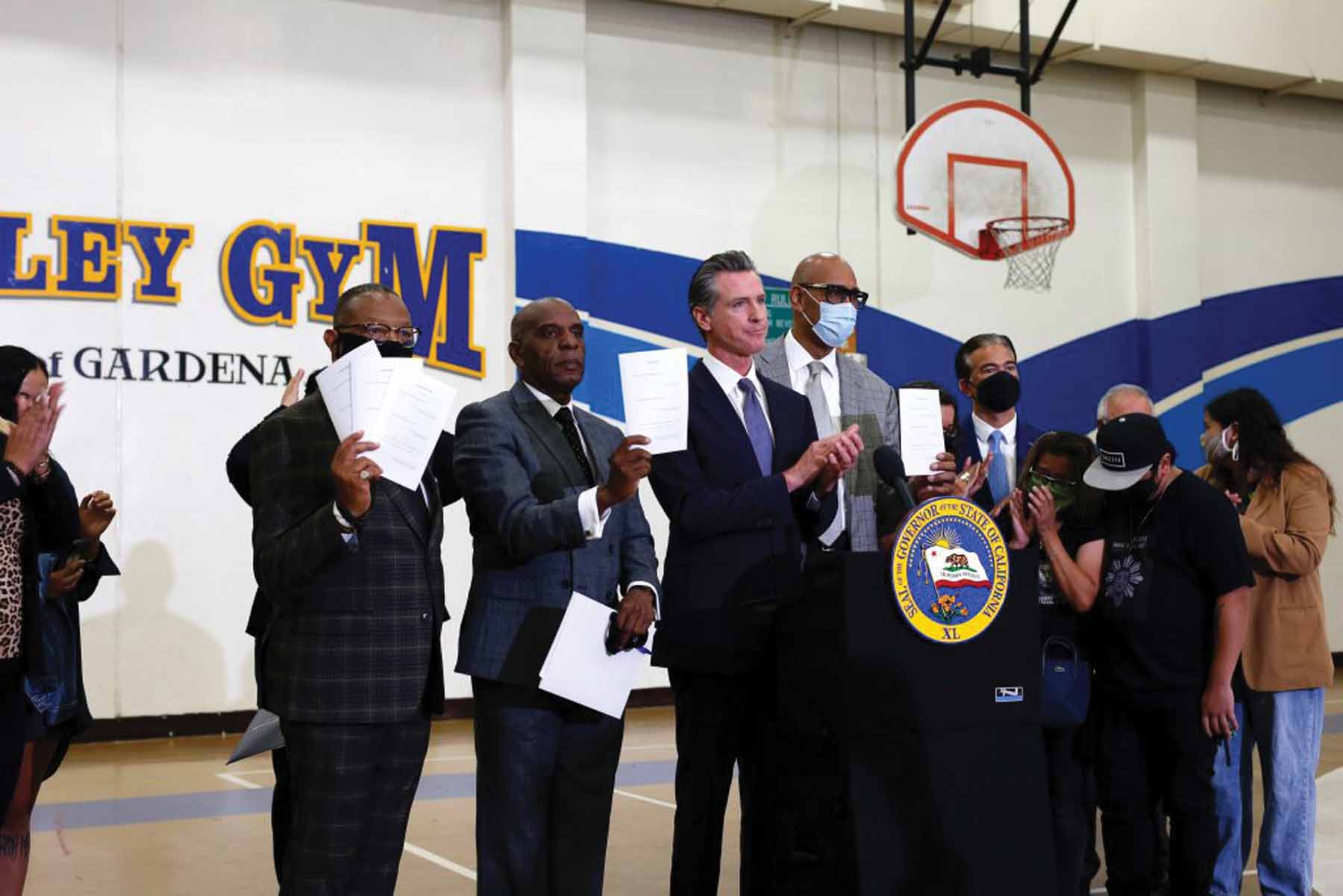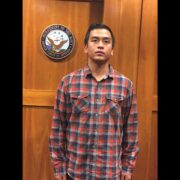
CALIFORNIA Governor Gavin Newsom has signed eight new bills into law that advocate police reform, including one that bans law enforcement from strangulation restraint tactics that cause asphyxia.
Assembly Bill 490 or Angelo’s Law, authored by Chair of the Select Committee on Police Reform, Mike Gipson (D-Carson), was signed by Newsom on Thursday, September 30.
The bill is named after Filipino American Angelo Quinto, a 30-year-old Navy veteran, who died after a police officer allegedly knelt on his neck for almost five minutes, as previously reported by the Asian Journal.
“Today marks another step toward healing and justice for all,” said Newsom.
“Too many lives have been lost due to racial profiling and excessive use of force. We cannot change what is past, but we can build accountability, root out racial injustice and fight systemic racism. We are all indebted to the families who have persevered through their grief to continue this fight and work toward a more just future,” he added.
Also in attendance at Thursday’s signing were Quinto’s family members. Cassandra Quinto Collins, his mother, reportedly burst into tears and was hugged by Newsom, while his sister, Bella Collins Quinto, recalled how Angelo died.
“The police came, and they kneeled on his neck until he was unresponsive,” she said. “Even in the last four minutes of restraint, he was unresponsive and they didn’t address that at all. It was in front of our mom — in our room. It was just absolutely excessive and unnecessary.”
Meanwhile, Robert Collins, Quinto’s stepfather, said that signing police reform bills meant that “change is possible.”
“Angelo was not violent, he was having a mental health crisis and that was not addressed,” he said.
“These bills…bring justice for the mothers, hope that change is possible and that this loss is not in vain if it can prevent others from suffering the same loss,” he added.

Angelo’s Law expands the measure of AB 1196, a bill that was also co-authored by Gipson and signed by Newsom in 2020 that bans police from using the same kinds of chokeholds that killed George Floyd.
It ensures that, in addition to chokeholds, officers are not continuing to use other types of techniques like the “knee to neck” restraint that actually led to the death of Floyd and Quinto.
Aside from Angelo’s Law, Newsom also signed the following police reform bills:
- AB 26 by Assemblymember Chris Holden (D-Pasadena), which requires police officers to intervene when other officers use excessive force and prohibits retaliation against officers that report excessive force;
- AB 48 by Assemblymember Lorena Gonzalez (D-San Diego), which bans the use of rubber bullets or tear gas by any law enforcement agency;
- AB 89 by Assemblymember Reggie Jones Sawyer (D-Los Angeles), which raises the qualifying age for peace officers from 18 to 21;
- AB 481 by Assemblymember David Chiu (D-San Francisco), which regulates the funding, acquisition, and use of military equipment by law enforcement agencies;
- AB 958 by Assemblymember Mike Gipson (D-Carson), which requires law enforcement agencies to terminate any officer who participates in a “law enforcement gang”;
- SB 2 by Senator Steven Bradford (D-Gardena), which sets up an advisory committee to investigate and revoke or suspend certifications for wrongdoings such as excessive force, sexual assault, and demonstration of bias, and;
- SB 16 by Senator Nancy Skinner (D-Berkeley), which increases transparency over peace officer misconduct records.
For his part, California Attorney General Rob Bonta said the bills would “infuse our criminal justice system with more trust, more transparency and more accountability.”
“By building trust today, we are ensuring officer and community safety for tomorrow. Trust generates safety and safety generates trust. It will take sustained work by all of us to get the job done, but this is a monumental step forward on the path toward justice.” n






